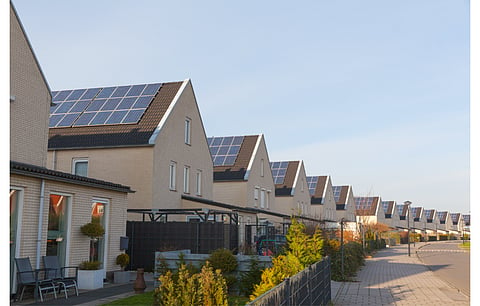

The provincial government of Nova Scotia in Canada has taken note of solar industry's protest against local utility's proposal to impose system access charge on solar net metering customers, saying it will bring in regulations to stop the same from being executed.
The Premier of Nova Scotia, Tim Houston announced his office will make sure the Nova Scotia Power's (NSPI) proposed CAD 8 per kW a month system access charge will not take effect as planned from February 1, 2023 to prevent a 'direct and immediate negative impact on small businesses and homeowners'. The NSPI's proposed net metering charges are 'not in line' with Nova Scotia's new Environmental Goals and Climate Change Reduction Act.
Here's the background for the uninitiated: Local utility NSPI wants to impose a system access charge on solar net metering customers for using its power infrastructure to feed excess solar energy generated or to use grid electricity when the solar system doesn't produce enough.
To this, the Canadian Renewable Energy Association (CanREA) protested strongly saying it would devastate the industry and erase economic value of solar net metering. The utility then issued a statement saying it will be open to a dialogue with the industry regarding its proposal, to ensure a 'strong and fair Net Metering program' can be in place (see Nova Scotia's Net Metering Access Charges).
Back to the latest development: Houston said the administration has informed the Nova Scotia's Utility and Review Board (NSUARB) via a letter of its plans to 'bring forward necessary legislative and regulatory framework that will protect ratepayers' while preserving the enhanced net metering program as it is (as on January 26, 2022).
"We agree that it is time for changes to the enhanced net-metering program but the changes we seek will support the greening of the grid, not discourage it," said Houston.
CanREA of course welcomed the government intervention to prevent the charges that would have doubled the pay-back period for rooftop solar panels from 10 years to 12 years now, to more than 20 years. It would 'support the long-term sustainability of the solar industry' while encouraging locals to 'confidently' invest in low-cost, non-emitting solar generation, stated the association.
In addition, the provincial government said it is also bringing in measures for enhancement to the commercial and community solar programs with an aim to make solar power more accessible to everyone including renters, small businesses and marginalized communities. "These changes will also allow for larger solar projects for communities, farms and businesses," it added.
